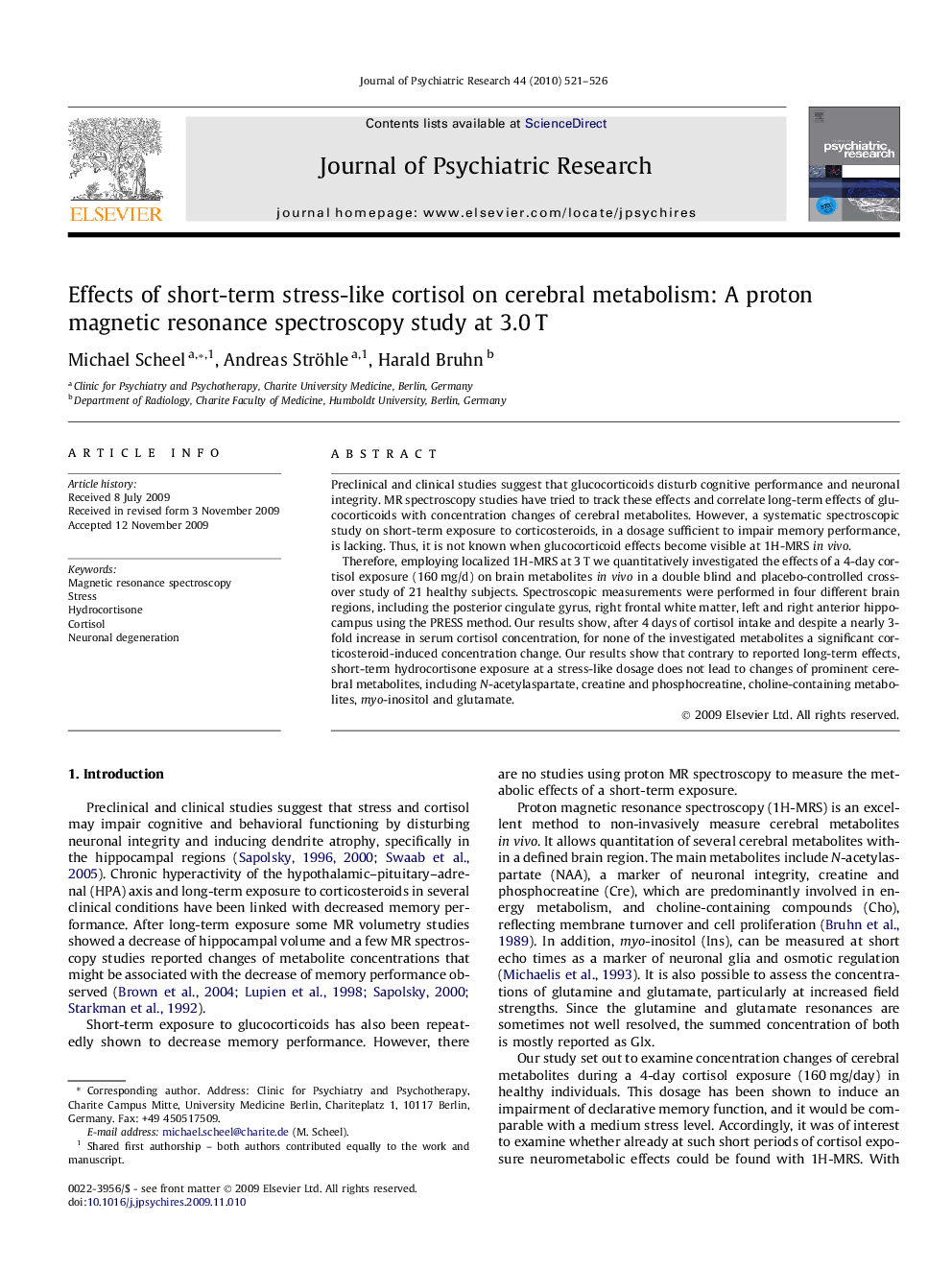| Article ID | Journal | Published Year | Pages | File Type |
|---|---|---|---|---|
| 327779 | Journal of Psychiatric Research | 2010 | 6 Pages |
Preclinical and clinical studies suggest that glucocorticoids disturb cognitive performance and neuronal integrity. MR spectroscopy studies have tried to track these effects and correlate long-term effects of glucocorticoids with concentration changes of cerebral metabolites. However, a systematic spectroscopic study on short-term exposure to corticosteroids, in a dosage sufficient to impair memory performance, is lacking. Thus, it is not known when glucocorticoid effects become visible at 1H-MRS in vivo.Therefore, employing localized 1H-MRS at 3 T we quantitatively investigated the effects of a 4-day cortisol exposure (160 mg/d) on brain metabolites in vivo in a double blind and placebo-controlled cross-over study of 21 healthy subjects. Spectroscopic measurements were performed in four different brain regions, including the posterior cingulate gyrus, right frontal white matter, left and right anterior hippocampus using the PRESS method. Our results show, after 4 days of cortisol intake and despite a nearly 3-fold increase in serum cortisol concentration, for none of the investigated metabolites a significant corticosteroid-induced concentration change. Our results show that contrary to reported long-term effects, short-term hydrocortisone exposure at a stress-like dosage does not lead to changes of prominent cerebral metabolites, including N-acetylaspartate, creatine and phosphocreatine, choline-containing metabolites, myo-inositol and glutamate.
